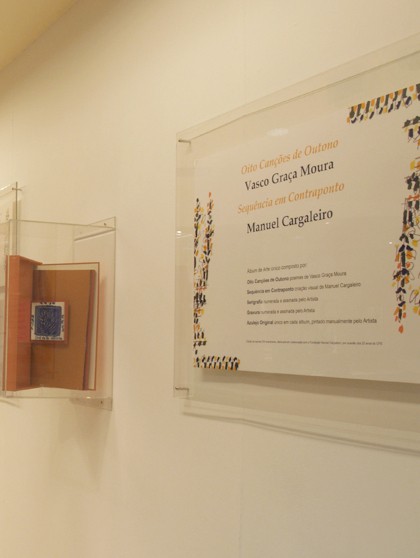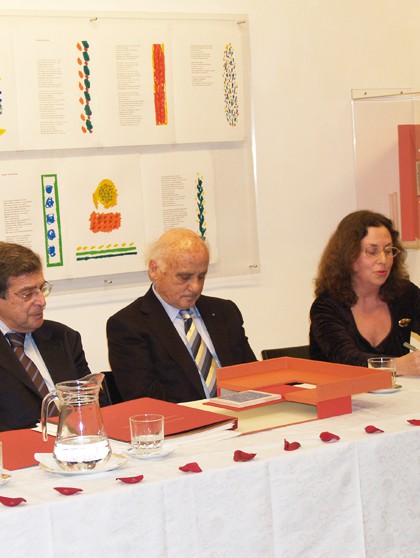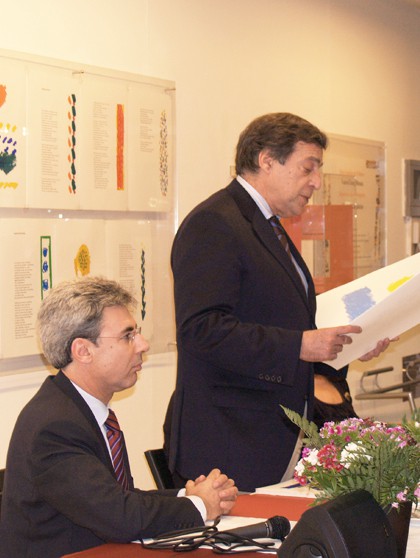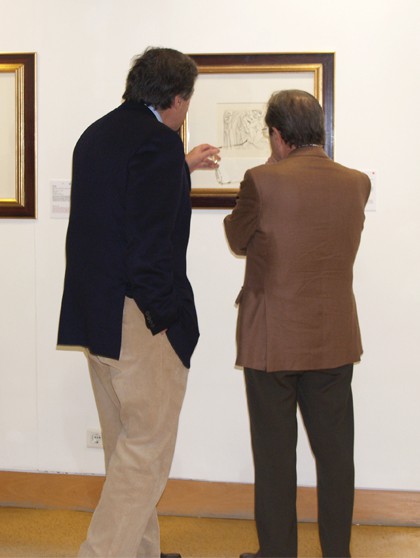



Eight Songs of Autumn - Counterpoint Sequence, Art Album
Edited in collaboration with the Manuel Cargaleiro Foundation, the Portuguese Screen Printing Center presents on March 29th, 5th On the fair, at 7pm, a majestic album entirely created in silkscreen. The album with a print run of just 200 copies contains: ► Cycle of eight poems by Vasco Graça Moura with the title "Eight Songs of Outon" ► Visual Creation "Sequê "ncia em Contraponto" by Manuel Cargaleiro, to illustrate the poems, also including an engraving, a silkscreen (numbered and signed) and an exclusive tile painted with paint. hand by the author. This large-format album with extraordinary plastic beauty draws attention to the work of the painter, currently with great ties to Italy where he was created, in Vietri sul Mare ( Province of Salerno), in 2004, a Foundation (which in 1999 awarded him a first major international prize) with his name, dedicated to Salerno. your ceramic work. The Cargaleiro collection, which must involve a pedagogical aspect, will occupy several centers, in Castelo Branco, in Vila Velha de Ródão, in Seixal, with a project by Siza Vieira, and in Praça de Espanha in Lisbon. Manuel Cargaleiro, born in 1927, based in Paris since 1957, where he developed a great friendship with Vieira da Silva and Arpad Szènes, painter and ceramist, has exhibited since the beginning of the 1950s and established himself in second half of the 20th century as one of the greatest exponents of international lyrical abstraction, in the line of the Frenchman Bissière who will have him in his own right. influenced. The critic Rui Mário Gonçalves wrote about Cargaleiro: "The pure colors of his abstract painting harmonize in a homogenizing luminosity, but which allows us to highlight, preciously, some graphic signs of a more contrasting color that disperse and respond in an imaginary space." In this dialogue with the poetry of Vasco Graça Moura, his palette opens up in games of exuberant and luxurious empathy between the forms of happy writing and the colors, smiles of the land and the sea. Rubies from a slow visitation of prodigies, blue pearls, intimate and sweet substances, green leaves from a serene summer that gold kisses, emerge in colorful and festive stained glass windows of consciousness. Science awakens to the enchantment and grace of the visible perfumed by the splendors of the invisible. Color awakens sensations in a myriad of fabulous chords, dance of lines on the threshold of light, small miracles of creation. As for Vasco Graça Moura, poet, exegete, anthologizer of poetry of all times and brilliant translator recently dedicated to poetry. Dante's monumental work, his poetry inhabits, in a musical tune and in a flowing flow illuminated by the richness of the vocabulary and the expressiveness of the images, the sparkling vaults of the paintings that in turn complete them as if from a single body. treated. Body of poetry, splendid, fed by intertextuality with Camões or Raúl Brandão and by dialogue with great masters of painting, (Giorgione, Carlos Botelho) or getting lost in the labyrinths of everyday life, vibrating in the frenzy ;myth of your nightmares, in the itinerary of beloved cities and spaces and sometimes already forgotten. disenchanted, between Brussels, Lisbon, Venice and Foz do Douro, in brief and serious songs, to free themselves, pure singing and luminous melody, in counterpoint to the image, in a secret hymn to love. His role as a translator earned him the “Person” for the translation of “Vita Nuova” and “Divine Comedy”. More recently, he was distinguished with the French Poetry Prize “Max Jacob”, for his work “A Letter in Winter”, from 1997, and with the “Vergílio Ferreira” 2007 at the University of Évora. "Song of loving oneself so much and being loved, / says more serious words without fear: / it is in them that I become entangled / by them gravely freed." Love of the visible and the invisible, of light and space, of the word and the image in the magnificent symphony of two Masters of Portuguese culture of our time, who reinvent, under the sign of mystery and of wonder, the adventure of writing.